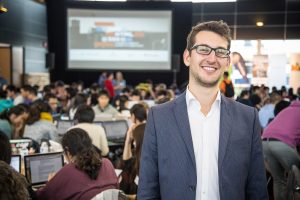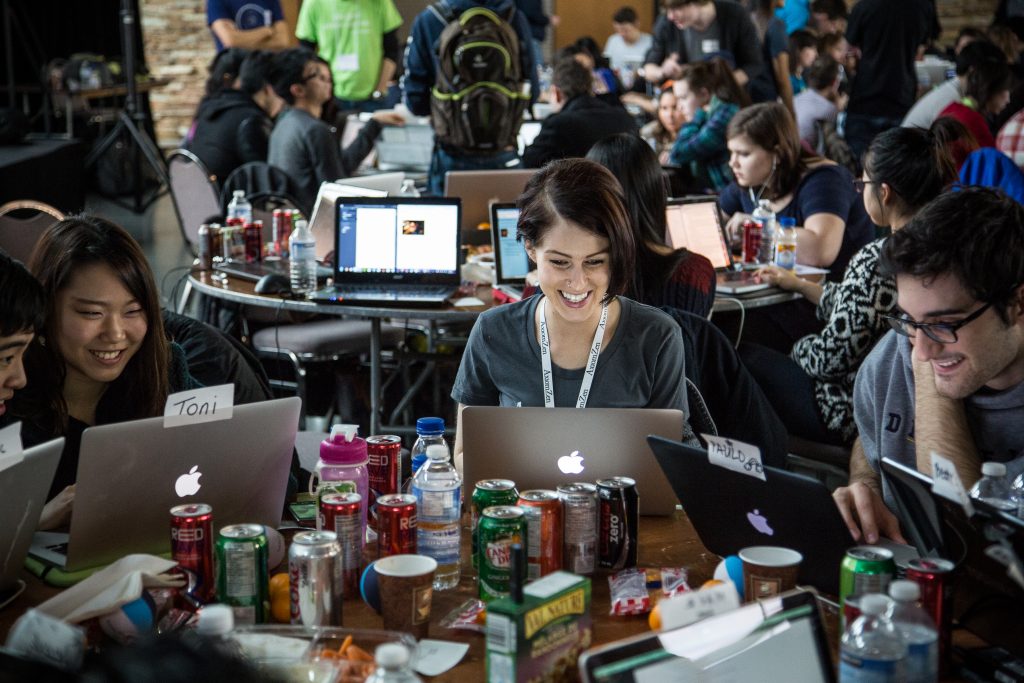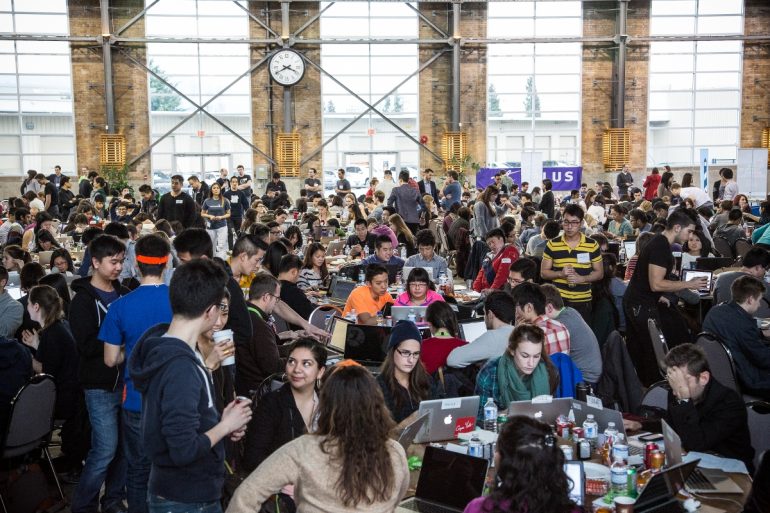“The man who does not read has no advantage over the man who cannot read.” ― Mark Twain
Participating in the first ever HTML500 is an experience still resonating with me today. While I’ve not written a line of code, every technology story I’ve written since then has a touch of reverence for those who help create today’s enabling and engaging technology.
The HTML500 is a free event where 500 lucky participants can learn the basics of HTML and CSS. Participants learn how to create their own landing page while networking with fellow attendees, recruiters, and the 100+ developers who are giving back to the community by donating their time, expertise and resources.
Hosting an all day introduction to coding event was a massive undertaking the first time around. For an encore the Lighthouse Lab team has decided to make the HTML500 happen in four Canadian cities. Starting with Vancouver January 24th (with over 1600 people on the lottery list), they’ll be in Calgary the 31st, London, ON. February 7th, and wrapping up in Toronto on February 22nd.
Barely a year old and by all accounts still a startup, Lighthouse Labs has mustered the resources to exponentially grow this event. As co-founder Jeremy Shaki told me, “we have the people in place to do it.” With a strong team and proven template to replicate last years success, Shaki shared that they want to improve on “taking the opportunity to reach beyond the local tech communities.”
The Lighthouse Labs team sees a bigger picture. This is more than everyone learning to code, or potentially becoming one of their future students. For Shaki, “it’s about more people in Canada understanding the value of digital literacy. It’s trying to get our governments and other major Canadian institutions involved in the conversation.”
is more than everyone learning to code, or potentially becoming one of their future students. For Shaki, “it’s about more people in Canada understanding the value of digital literacy. It’s trying to get our governments and other major Canadian institutions involved in the conversation.”
There needs to be a greater collective realization that technology in Canada is about more than just those working in technology. There’s not an industry, an institution, or individual that’s not in some way affected, impacted or influenced by technology today.
Lighthouse Labs Khurram Virani (co-founder & Dir. of Education) points out, “we created the HTML500 to promote digital literacy in Canada because frankly our education system hasn’t quite caught up to the fact that software is everywhere. It’s important for us to learn about laws of physics because they apply to us all, even though we may not choose to become physicists. The same applies to code now. It’s a fundamental part to practically everything we use in our personal and professional lives and so we should all understand how it works, regardless of our actual profession.”

“Within Canada there is nothing going on here to really push the envelope around digital literacy,” an emphatic Shaki added. “That’s not meant to offend anyone who’s trying, but when we look at the work being done by the likes of Hadi Partovi – Co-Founder, code.org; Mitchell Resnick – Co-Founder of Scratch Director of the Lifelong Kindergarten group at the MIT Media Lab, and TED Speaker; or Nicky Morgan – UK’s education secretary, where coding is now part of the school curriculum (children are taught from the age of 5!), it’s safe suggesting that our country is a laggard.”
For Shaki, “it’s about more people in Canada understanding the value of digital literacy.”
Thinking back to one of my pre-internet era English professors saying “you can only know the limitations of your own language by learning another one,” makes me ponder how software has become in many ways a universal, global, and dominant language. Yet it’s understood and appreciated by so few.
Virani thinks learning to code is like learning a new language, saying “I also think it goes beyond that. It’s not just about learning the grammar, the words, the punctuation of a new language, it’s also about learning the processes and tools that go into building something. It’s about learning and understanding how the computer thinks. You have to come to understand the architecture and the materials, not just the language.”
For Shaki, “there isn’t a background that can’t contribute something to code and the progress of technology. Everyone comes with their own set of problems that can be solved with technology. Understanding what to do with technology helps solve problems across the board. There isn’t a group that wouldn’t benefit from that opportunity of learning to code to solve their own problems.”
This event isn’t for developers. But if you are a developer, please volunteer and become a voice and example of why being digitally literate matters. Plus it’s a great chance to have a fun day of giving back to the community. Collectively everyone involved in making the HTML500 happen is excited about the prospect of seeing 2000 people getting introduced to a new language in four cities over the span of five weeks.


